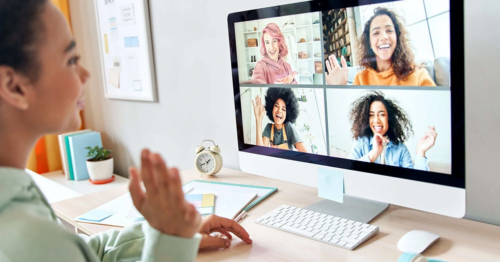
Table of Contents
Why Your Teen Should Enroll in Group Therapy
Written By: Charlie Health Editorial Team

Clinically Reviewed By: Dr. Don Gasparini
Updated: November 21, 2023
4 min.
Individual therapy is usually seen as the gold standard for outpatient care, but research consistently shows that group therapy is as effective as one-on-one counseling.
Learn more about our Clinical Review Process
Table of Contents
Between relationship issues, bullies, and peer pressure, there are tons of reasons why teens may withdraw from close friends and family members. Group therapy can help adolescents realize that they’re not alone—all while creating a judgment-free, supportive environment to explore their mental health challenges with others. Although individual therapy is usually seen as the gold standard for outpatient care, research consistently shows that group therapy is as effective as one-on-one counseling (and usually more efficient) in treating a range of mental health conditions, including anxiety, depression, and more. Here are five reasons why the young adult in your life should consider enrolling in teen group therapy.

Teen therapy is what we do
Charlie Health offers young people personalized care from the comfort of their home.
1. Teen group therapy promotes active participation
Therapy can be hard work. Every therapy session requires active participation, and working toward mental health goals requires a collaborative effort from the client and therapist. That’s where group therapy sessions can make all the difference for teenagers. Over the course of a group therapy program, group members may feel more comfortable opening up and participating after seeing others do so. Also, trusting that what happens in the group will stay in the group can inspire teens to participate in group therapy sessions fully.
2. Therapy groups help teens connect with their peers
Research shows that loneliness often peaks in adolescence, but group therapy can help teenagers form meaningful connections with their peers. Loneliness usually comes from feeling misunderstood or disconnected from others. In a group therapy setting, teens can share their thoughts and feelings with others who understand their struggles, fostering a sense of understanding and support. In a group, teens can realize that others share their experiences and feelings. This validation and normalization create a much-needed sense of belonging for many young people.

What’s the Difference Between Group Therapy and Individual Therapy?
Charlie Health Editorial Team
3. Group sessions expose teenagers to new perspectives
While teens often feel a sense of connection in group therapy, the group setting also brings together a set of people with unique backgrounds, experiences, and viewpoints. In group therapy, teens share their thoughts and feelings, hearing a variety of stories from their peers. This diversity helps them understand the world better and provides different ways to cope with challenges. The mix of experiences in the group makes it a welcoming space where each teen can connect with different parts of their peers’ stories and learn new things.
4. Group sessions empower teens to make positive changes
As teens witness the diverse coping strategies and perspectives within the group, they gain valuable insights that can inspire positive shifts in their own behaviors and attitudes. For example, maybe a group member has a coping skill for dealing with panic attacks that another group member never considered. The shared camaraderie in the group fosters a sense of accountability, motivating teens to set and work towards personal goals. Through active participation, constructive feedback, and a collective commitment to growth, group therapy empowers teenagers to navigate challenges, build resilience, and make positive changes that extend beyond the therapy setting into their daily lives.

5. Group therapy teaches teens about healthy relationships
From family relationships to romantic partners, healthy relationships are an important source of support in any teen’s life. Stable relationships are built on trust, honesty, and support, but teens may lack the tools to identify unhealthy relationships. By developing healthy relationships in group therapy, teenagers can recognize what a healthy relationship looks like, learn the warning signs for unhealthy interactions, and take steps to ensure their relationships have a strong foundation. Groups also allow teens to practice healthy social skills and communication skills, like active listening and effective strategies for addressing conflict. Importantly, group therapy sessions also help teens to cultivate healthy relationships with themselves. Through group activities, teens can develop sustainable self-care strategies to manage stress and maybe learn a new coping skill or two along the way.
Teen therapy groups at Charlie Health
If a young person in your life is struggling with anxiety, depression, or another mental health challenge and may benefit from group counseling, Charlie Health is here to help.
Charlie Health’s virtual Intensive Outpatient Program offers more than once-weekly support for young people struggling with mental health challenges and their families: teen therapy is what we do. A cornerstone of our personalized treatment plan for every young person is group sessions. These sessions are a chance for young people to process together and learn communication skills and social skills. Charlie Health’s IOP also offers family therapy and individual therapy as a part of our holistic healing plan.
If you think Charlie Health might be a fit for a young adult or family member in your life, fill out our free assessment to get started today.




